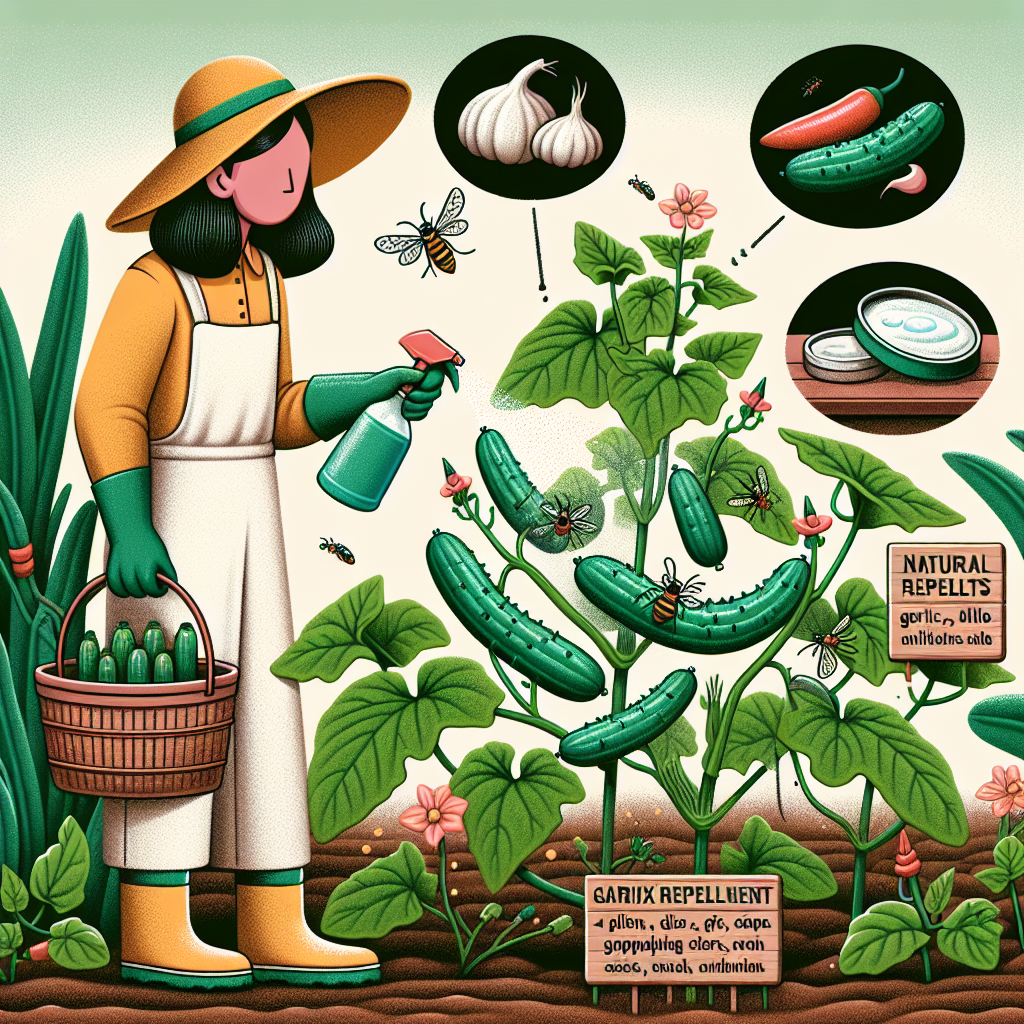
How do i keep bugs off my cucumber plants
How to Keep Bugs Off Your Cucumber Plants
Cucumbers are a fantastic addition to any vegetable garden, but they are notorious for attracting various pests. Knowing how to maintain a healthy plant while keeping pests at bay is essential for a successful cucumber harvest. In this comprehensive guide, we will explore effective strategies to protect your cucumber plants from unwanted bugs. Whether you're dealing with aphids, spider mites, or cucumber beetles, we've got you covered!
Understanding Pests That Affect Cucumber Plants
Before diving into prevention methods, it's important to identify the types of pests that commonly target cucumber plants. Here are some of the most common culprits:
- Aphids: Small, soft-bodied insects that suck the sap from leaves.
- Spider Mites: Tiny arachnids that create webs and cause leaf discoloration.
- Cucumber Beetles: Yellow and black striped insects that feed on leaves and can transmit diseases.
- Whiteflies: Small, white moth-like insects that also suck plant sap.
Natural Methods to Keep Bugs Away
One of the most effective ways to protect your cucumber plants is to use natural methods that deter pests without harming the environment. Here are some tried-and-true techniques:
1. Companion Planting
Companion planting involves growing different plants close together for mutual benefits. Some plants can help repel pests naturally. Consider the following companions for your cucumbers:
- Nasturtiums: Deter aphids and cucumber beetles.
- Marigolds: Repel nematodes and other harmful bugs.
- Basil: Deters flies and mosquitoes.
2. Introduce Beneficial Insects
Encouraging natural predators in your garden can significantly reduce pest populations. Here are some beneficial insects to attract:
- Lacewings: They feed on aphids and other soft-bodied insects.
- Ladybugs: Great for controlling aphid populations.
- Parasitic Wasps: Help in managing caterpillar pests.
3. Use Essential Oils and Natural Sprays
Essential oils can be a powerful ally in keeping your cucumber plants pest-free. Create your own natural pest deterrent using the following recipe:
- Mix water and a few drops of eucalyptus or peppermint oil in a spray bottle.
- Spray this solution on your cucumber leaves, focusing on the underside.
- Reapply every few days, especially after rain.
4. Maintain Plant Health
Healthy plants are less susceptible to pests. Here are some tips to keep your cucumber plants thriving:
- Water consistently to avoid stressing the plants.
- Provide adequate nutrients, particularly nitrogen.
- Regularly prune dead or infected leaves to maintain good airflow.
Cultural Practices to Prevent Pest Infestations
Incorporating cultural practices into your gardening routine can create an environment that is less welcoming to pests. Consider the following approaches:
1. Crop Rotation
Changing the location of your cucumber plants each season can confuse pests and disrupt their lifecycle. Aim to rotate crops in a three-year cycle to minimize pest buildup.
2. Proper Spacing
Ensure adequate spacing between your cucumber plants. Overcrowded plants can create a humid environment that attracts pests. Space them to promote good airflow and sunlight penetration.
3. Use Row Covers
Floating row covers can provide a physical barrier against pests while allowing light and moisture to penetrate. Use them during the early growing season when pests are most prevalent.
Mechanical Control Methods
In addition to natural and cultural methods, there are mechanical ways to keep bugs off your cucumber plants.
1. Handpicking
Regularly inspect your cucumber plants for pests. Handpicking adult insects, such as cucumber beetles, can be effective. Drop them into soapy water to eliminate them.
2. Sticky Traps
Place yellow sticky traps around your cucumber plants to catch flying pests like whiteflies and aphids. These traps are effective at monitoring pest populations and can reduce their numbers.
Chemical Control Options
If natural methods fall short, there are chemical options available, but they should be used as a last resort. If you choose this route, consider the following:
- Insecticidal Soaps: Effective against soft-bodied insects like aphids.
- Neem Oil: A natural pesticide derived from the neem tree that disrupts the pest's lifecycle.
- Pesticide Dusts: Use specifically formulated dusts designed for vegetable gardens, but use them cautiously to minimize harm to beneficial insects.
Identifying Pest Problems Early
Regularly inspecting your cucumber plants will help you catch pest problems early before they escalate. Look for:
- Discoloration or wilting of leaves.
- Visible insects or webbing on plants.
- Stunted growth or poor fruit development.
Conclusion
Keeping pests away from your cucumber plants is crucial for a healthy and bountiful harvest. By employing a mix of natural, cultural, mechanical, and when necessary, chemical methods, you can be proactive in pest prevention. Remember to monitor your plants regularly, maintain their health, and embrace the biodiversity of your garden. By following these strategies, you will be well-equipped to handle pest challenges and enjoy delicious homegrown cucumbers!
By Guest, Published on September 29th, 2024